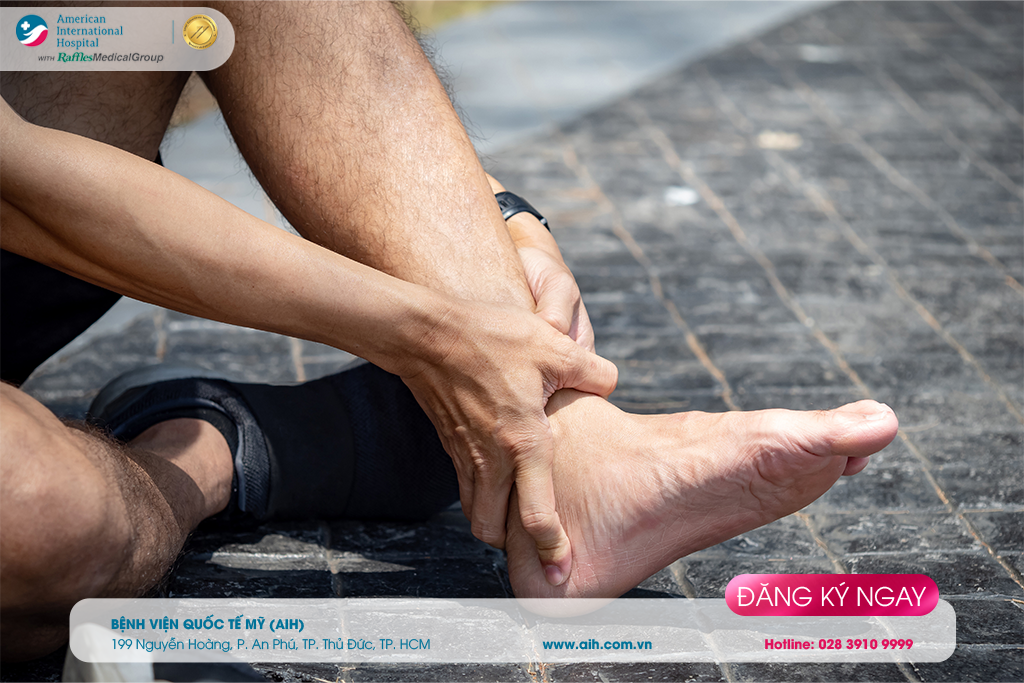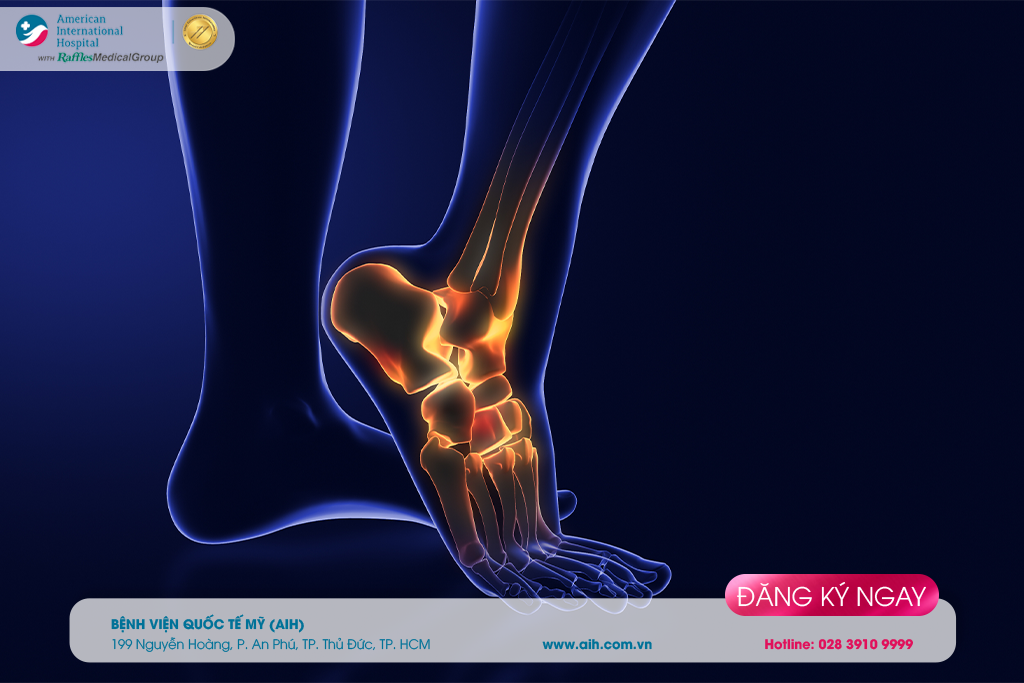Thông báo
Vui lòng điền vào thông tin bên dưới
Khẩn cấp
ANKLE PAIN: EFFECTIVE TREATMENT AND PREVENTION
Ankle pain is a condition that causes discomfort and ache in the ankle and ankle joints, occurring due to many different causes. Ankle pain can occur for many reasons. The most common causes include injuries, arthritis, etc. Depending on the cause, you may feel pain anywhere around the ankle. The ankle also causes inflammation, swelling, and makes it difficult to move normally.

Who usually has ankle pain?
Ankle injury (ankle dislocation) is a common injury in sports, especially in sports that require jumping, the act of rotating the feet such as basketball, tennis, football, rugby and jogging.
Walking or running on uneven surfaces or poor training ground conditions may increase the risk of ankle dislocation.
Once you've had a dislocated ankle or other type of injury, you have a higher risk of having a dislocated ankle again.
• Poor physical condition:
Poor ankle strength or flexibility can increase the risk of dislocation when participating in sports.
• Wear unsuitable shoes:
Causes of ankle pain
Some of the most common injuries that cause ankle pain include:
• Sports injuries
• Ankle sprain
• Tendinitis (peroneal or Achilles tendinitis)
• Bursitis
• Achilles tendon injury (including Achilles tendon tear)
• Ankle fracture (malleolus fracture)
• Rheumatoid arthritis
• Ankylosing spondylitis
• Lupus
• Flat feet
• High arched feet (also known as pes cavus)

Common symptoms of ankle pain
• Pain in the ankle and heel, pain in the calf when standing on the toes
• Redness and swelling, dull pain
• Chronic ankle instability: The ankle joint can become less stable, easily dislocated again.
Diagnosis of ankle pain
Physical examination
Blood tests
Blood tests may sometimes be ordered to rule out gout, infection, or arthritis. These tests can help detect elevated levels of uric acid or specific antibodies, aiding in differential diagnosis.
Diagnostic imaging
X-rays are the first imaging measure used to evaluate injuries, fractures, and arthritis in the ankle. In more complex cases or when soft tissue injury is suspected, a doctor may recommend magnetic resonance imaging (MRI) or computed tomography (CT) scans to provide more detailed images.
Differential diagnosis

How to treat ankle pain?
Rest: Avoid activities that cause injury or ankle pain, limit movement in the injured area, let the bones and joints rest completely.
Ice: Ice compress is very useful to reduce swelling and pain. Apply the ice pack wrapped in a thin towel to the ankle for 15 minutes at a time, several times a day.
Elevation: Elevate your ankle above the level of your heart as often as possible.

If the pain persists for more than a few days or does not improve after you try home treatments, you should visit the nearest medical facility for timely treatment. Common treatments for ankle pain include:
• Use foot orthoses or change shoes: Foot orthoses are shoe inserts and splints that support your feet and ankles. You may also need to change the type of shoe to suit certain activities.
• Physiotherapy: The physiotherapist guides exercises to increase the strength and flexibility of the ankle.
• Ankle immobilization: You may need to wear a splint, bandage, or cast to keep your ankle immobilized and relieve pressure during recovery.
• Arthrocentesis: The doctor inserts a needle into the ankle to remove excess fluid that causes swelling.
Prevention
• Give your body time to rest and recover after intense activity.
• Take time to warm up with ankle stretches before playing sports or training.
• Stretching after physical activity.





































































